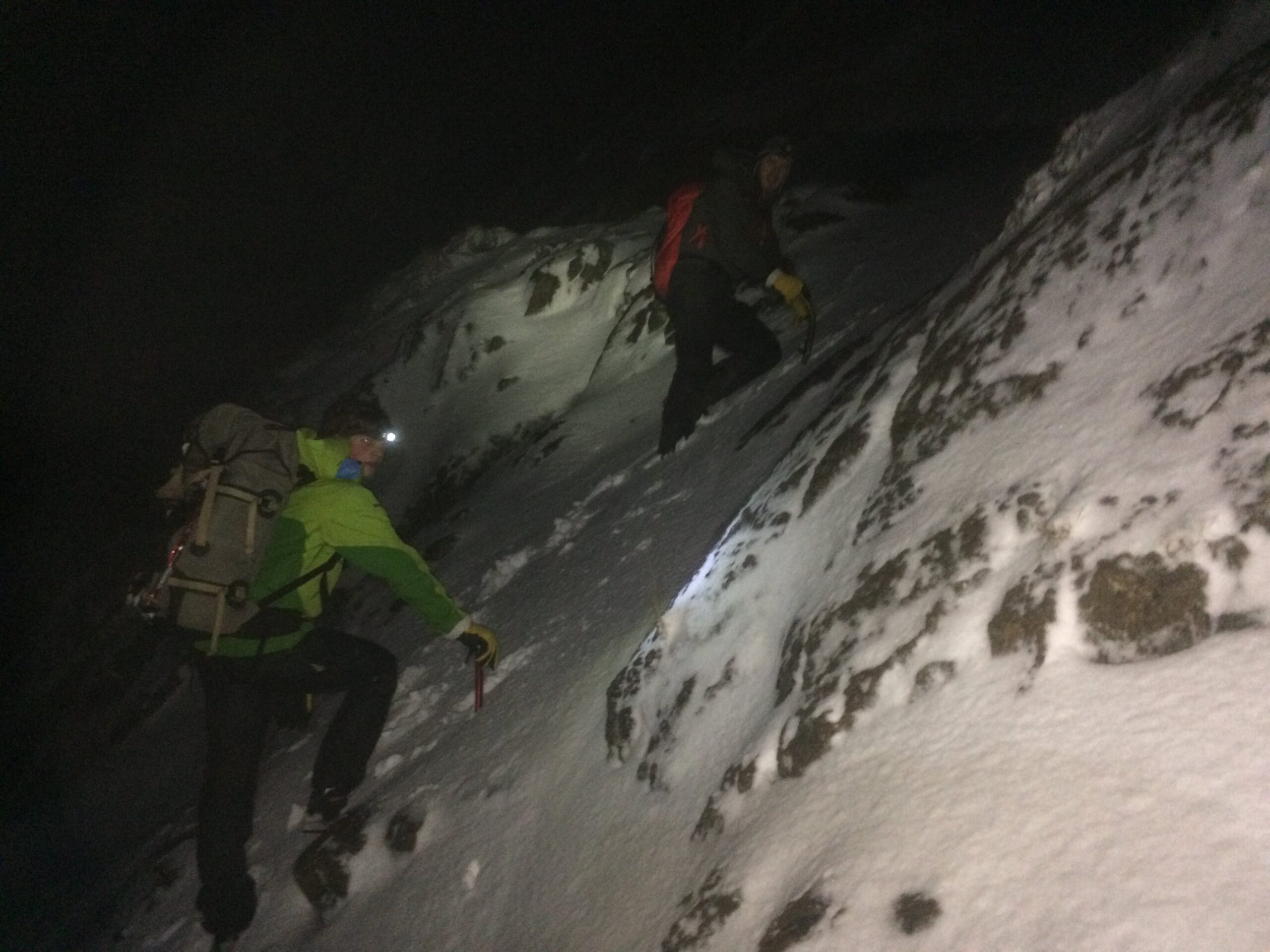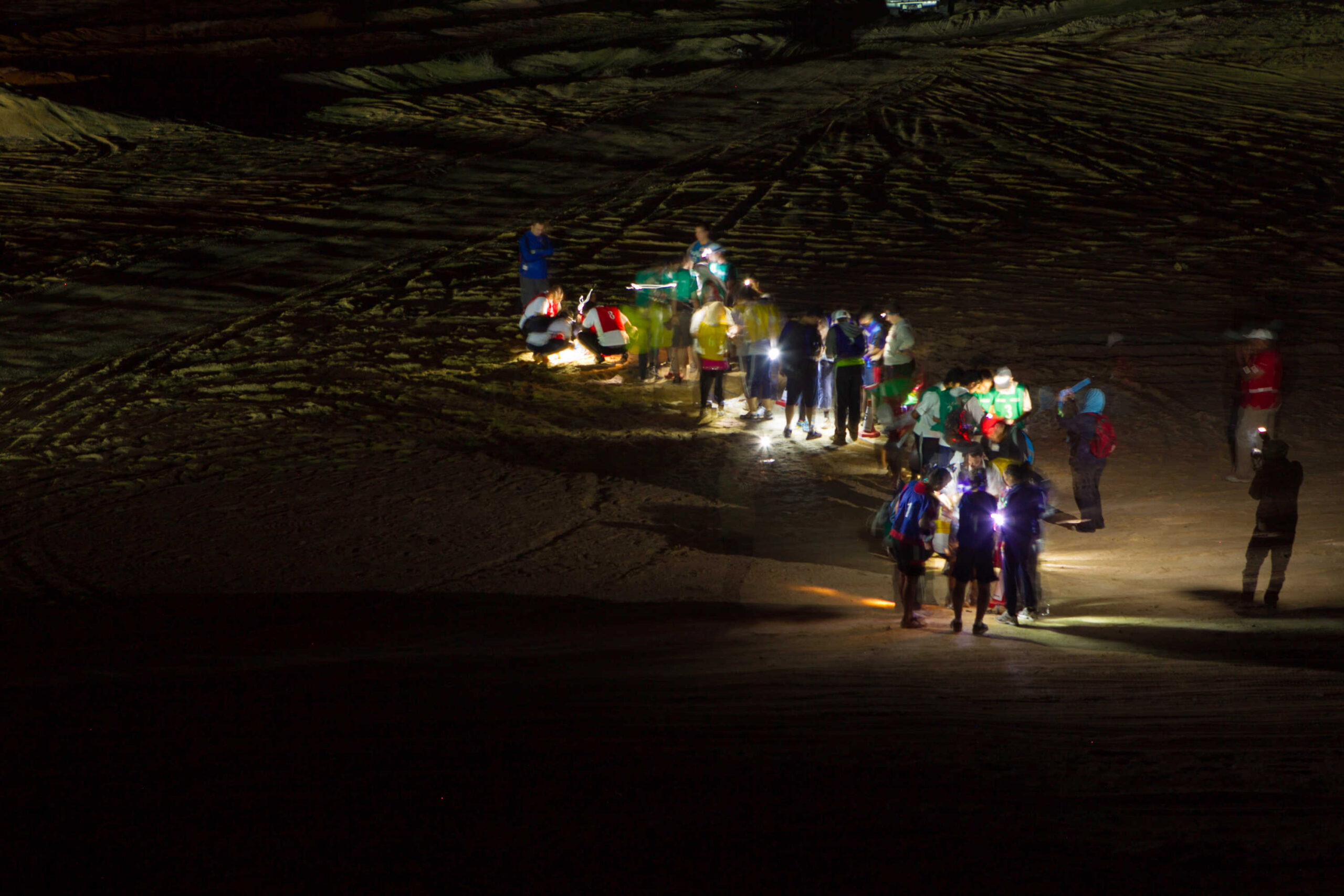Fear of the night
Robert Landon
13th November 2014
This year’s EBDA Desert Challenge, delivered by Red Rock International, is now over, but we wanted to highlight one of our favourite parts: the night stage.
The Challenge itself forms part of the EBDA, a leadership development programme tailor-made for a Qatar university partnership; it specifically takes students into a real-world environment to test and consolidate taught theoretical skills.
The night stage, in which teams navigated through the desert under the cover of darkness, is a particularly demanding part of the Challenge. In normal life, the night sky glows with street lighting and individuals make use of car headlights to simulate daytime.
However, in Red Rock International, we purposefully use the nighttime environment with its absence of light to facilitate a unique training environment and tap into some fundamental human emotions. As such, we have a naturally occurring environment in which teams are forced not only to overcome physical obstacles, but personal ones too – perhaps the most challenging.
Dealing with disorientation
At night, one’s field of vision is dramatically reduced, typically to the pool of light thrown by a headtorch. Given the lack of light, normal visual references are drastically reduced, such as paths, slopes, fences. This makes it very easy to lose one’s sense of direction and become lost. Retaining a sense of calm and perspective in such a situation is critical. Leaders will frequently face similar scenarios in the workplace, so this is an ideal training environment that replicates the demands.
Extreme staff trainging
Perversely, Red Rock International staff are adept at how to avoid and deal with disorientation. This is through extensive training in outdoor leadership, a key part of which is night navigation. Some of our trainers have taken this to extremes, undergoing testing examinations in winter conditions: storm-force winds, blizzards and white-outs, features completely buried under snow. Such extreme conditions require a total reliance on simple tools such as a compass, pacing, timing and visual observation to measure distance and direction; not to mention steady nerves and self-confidence.

Playing on fear
When the normal comforts and aids of light and visual references are removed, operating in a night environment can quickly cause fear and panic. Darkness and disorientation spark powerful, fundamental human emotions. For thousands of years humans have sought to manage these primeval fears. Since darkness increases the perception of increased likelihood of danger, injury or getting lost, individuals are forced to dig deep and overcome their own emotions in order to operate under true night conditions.
The EBDA Desert Challenge is now over for this year. However, individuals and teams continue their journey on the EBDA programme. The rigours of the night stage are over. However, the emotions and challenges of operating in that tricky environment will not quickly be forgotten.
We believe that the night environment is a excellent context in which to conduct training. The simple aspect of darkness so simply creates an authentic training environment and key human emotions and potential for behavioural change. For this reason we will continue to employ night stages for some time!





